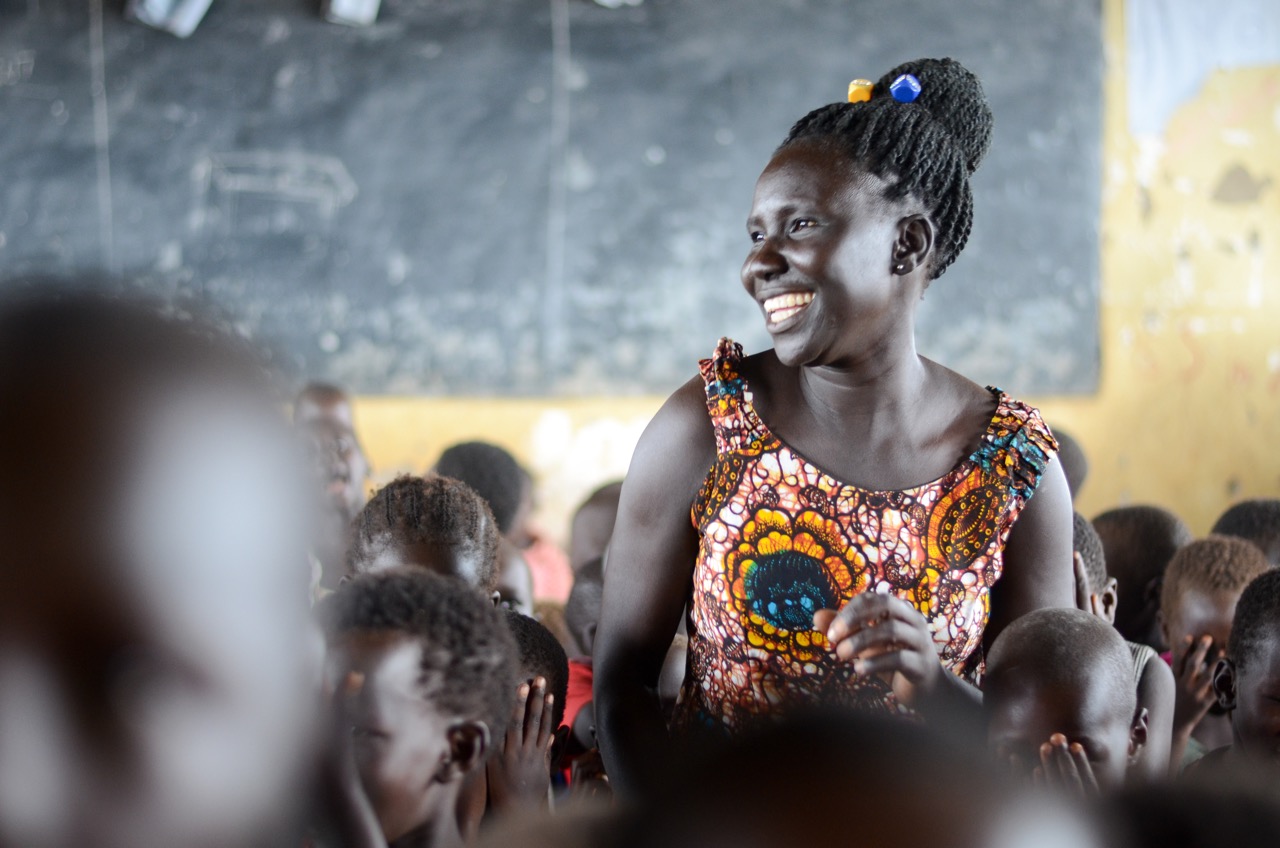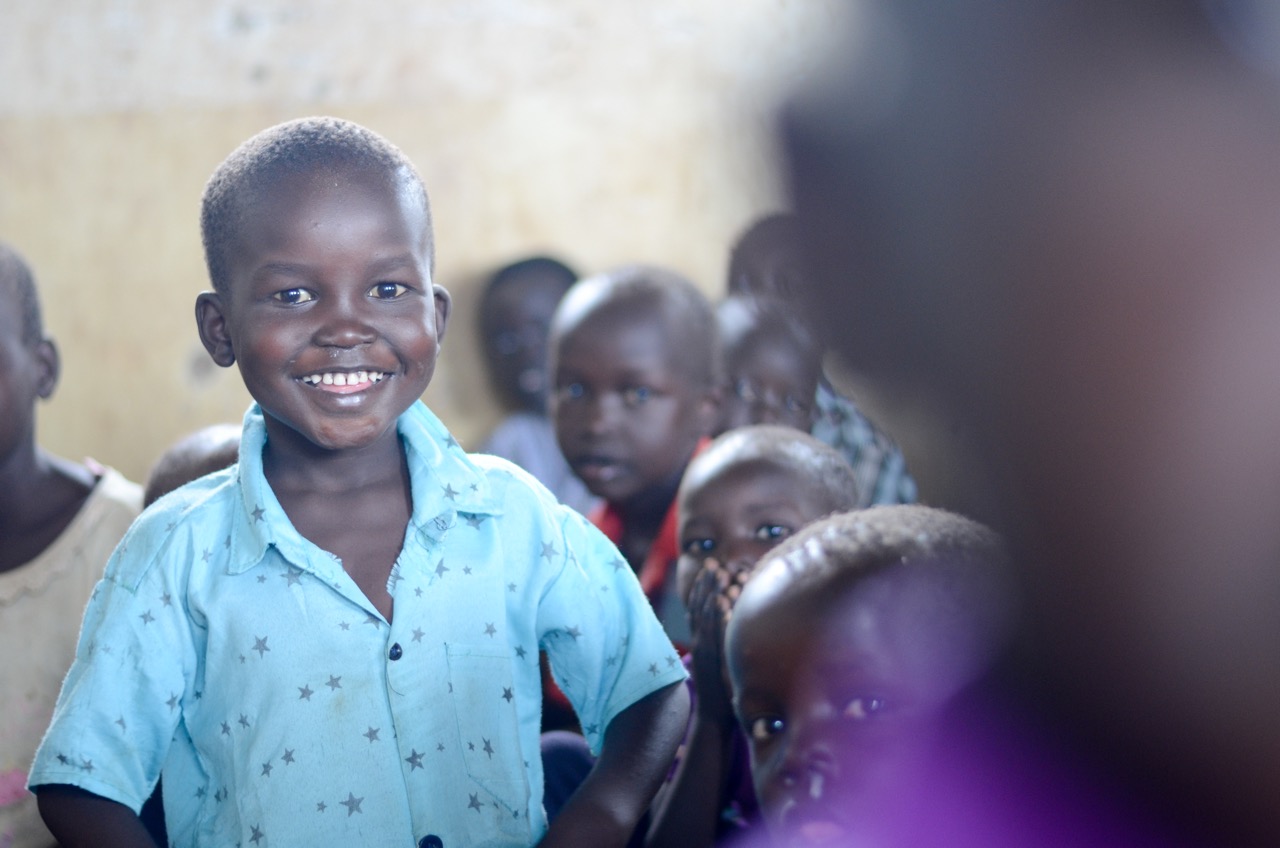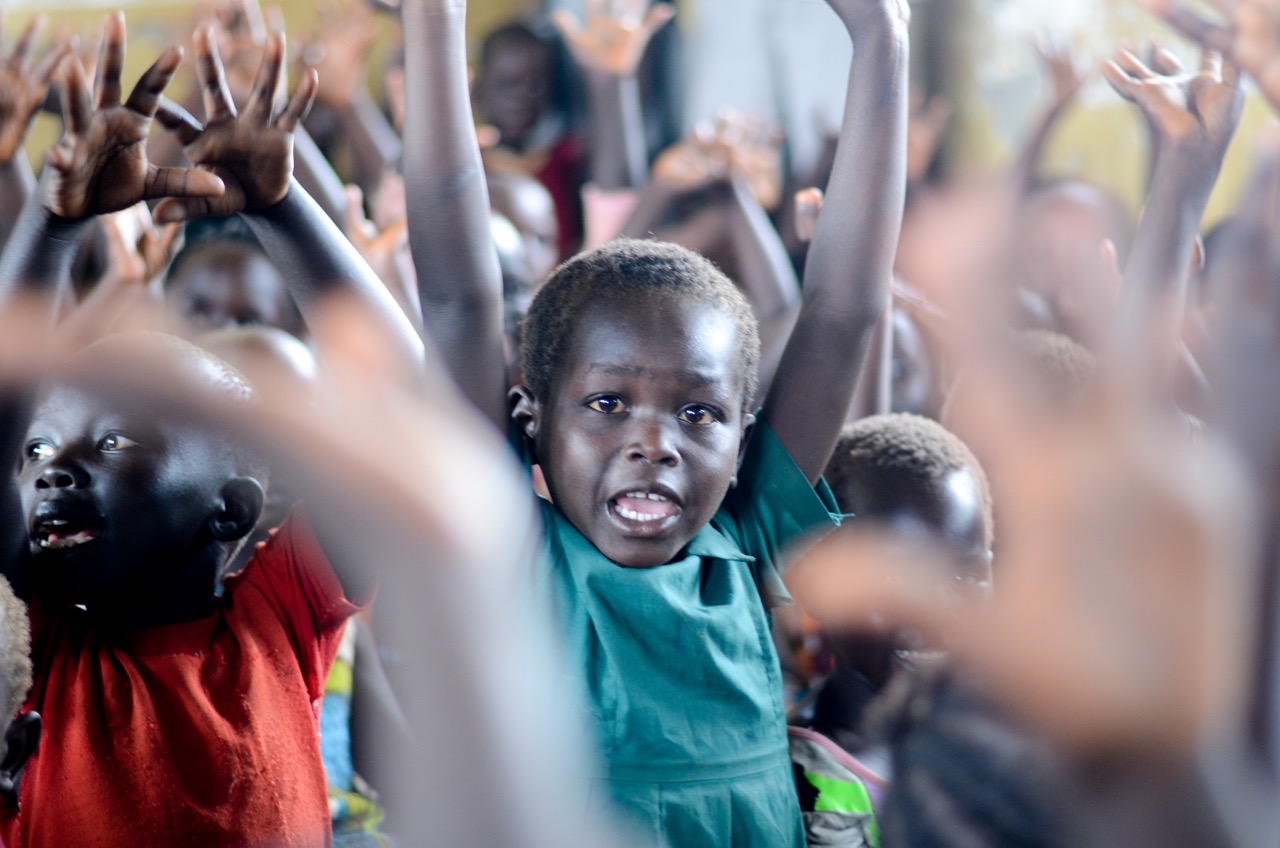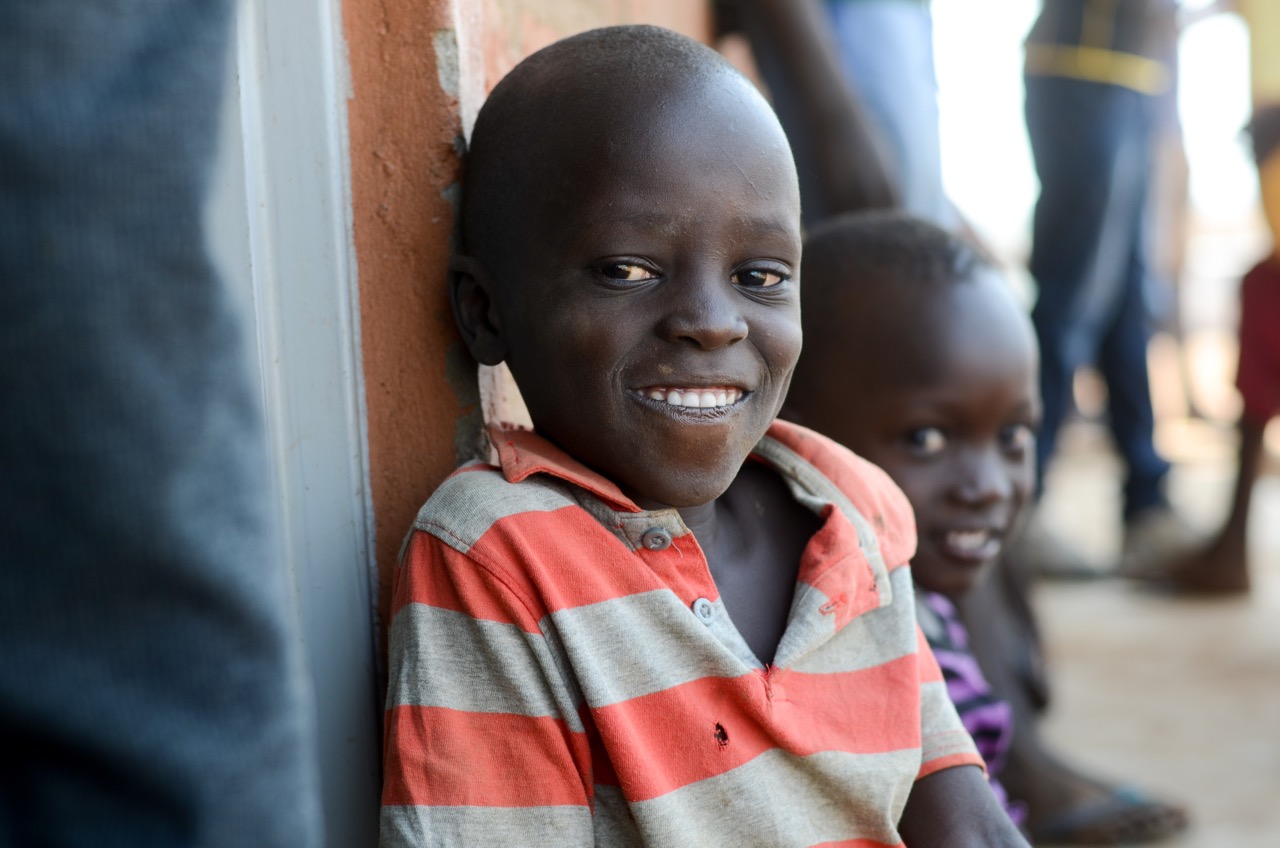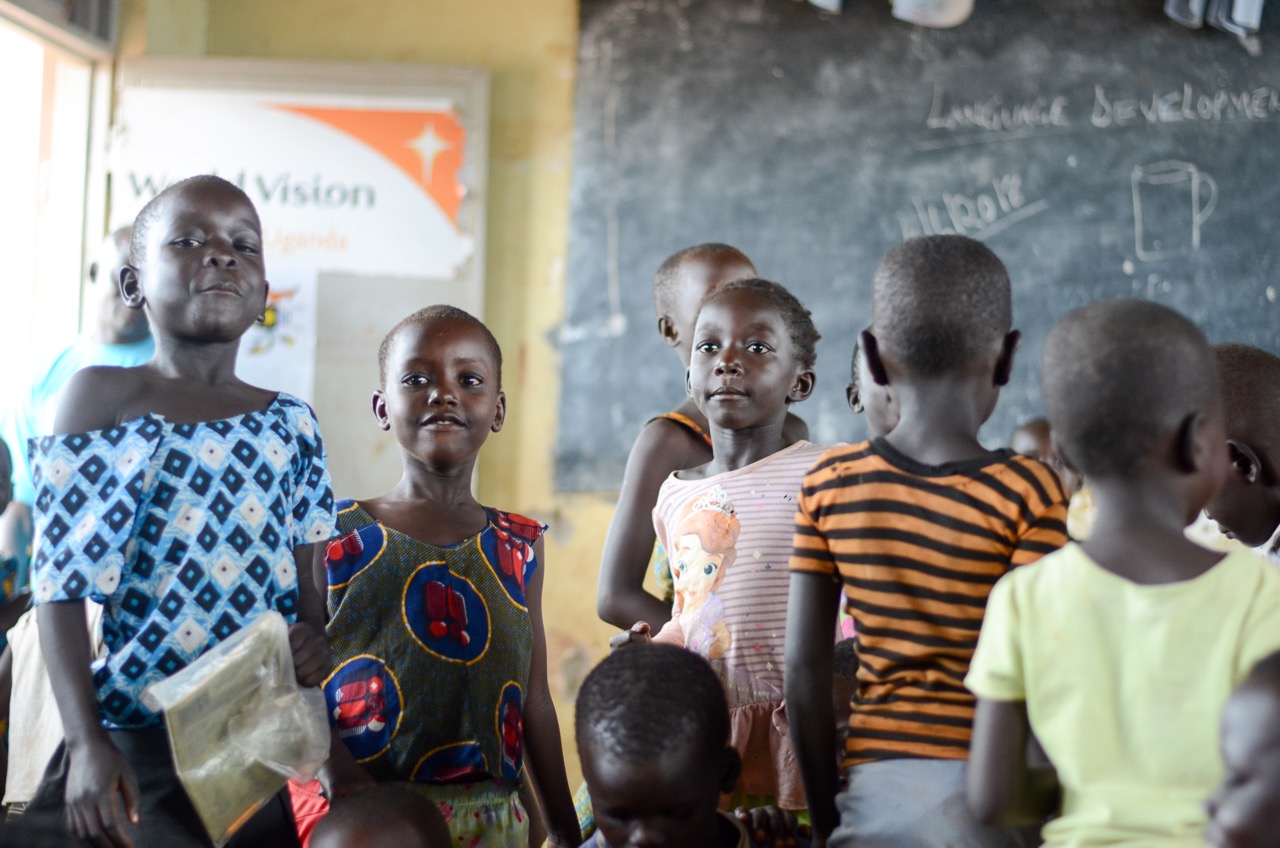5 reasons we invest in early education for refugee children

From Monday to Friday, more than 13,000 children march to World Vision’s early childhood education centres inside northern Uganda’s refugee settlements for their first smile of the day.
Here, learning is made fun and stimulating.
Rooms are filled with children ages three to six joyfully chanting nursery rhymes, giggling as they learn to count in English, singing as they repeat the alphabet and memorizing shapes and colours while playing with homemade toys.
Here, new friendships are sparked. Lines form to jump on the swings or hurl down the slide.
Here, an oasis that’s dedicated to one thing – setting children up with the learning tools to help them succeed in life.
“As children’s brains develop in the early years of their lives, they are highly influenced by their environment and the people that they are surrounded by. For refugee children, the environment they encounter can be challenging,” says James Kamira, World Vision’s child protection manager in the West Nile refugee response.
Many of the families, who arrived in Uganda more than two years ago, have witnessed or experienced violence, been shackled by poverty and have been unable to access basic services that help children develop.
“One of the biggest challenges we see in our classes is from children whose parents are not with them,” says Lona Sadia, a refugee who works at one of World Vision’s early childhood education centres in Bidibidi. “We pay extra attention to these children, and help them on their journey to learn and give them a sense of hope for the future.”
Why does World Vision invest in early education for refugees?
We do it because we know that early education works.
A study from the Organisation for Economic Co-operation and Development (OECD) found that children who regularly attend early education:
1.Do better in primary school
Children who attend early education classes perform better in reading, math and have better general knowledge, the OECD study found.
2.Stay in school longer
Children who attend early education classes were more likely to complete their primary and secondary education, setting them up for success in the future, the OECD stated.
Additionally, a report from UNICEF found that children attending early education classes benefit because they have:
3.Better problem-solving abilities
At early education centres, children are challenged by activities that aim to develop their cognitive abilities. The results of these activities enable children to more readily solve problems.
4.Stronger social skills
Because children interact with a diverse group of children, and when they receive positive reinforcement and interaction with an adult, their ability to socialize is strengthened.
Finally, a study from UNESCO found that children who attend early education have:
5.Have stronger language skills
Children who attend early education classes tend to have wider vocabulary and can better interact with other children as they can communicate better, the UNESCO report states.
The benefits of early education last a lifetime.
As children reach adulthood, the OECD, UNESCO and UNICEF have found that children who took part in early education were:
- Earning more income
- In better health
- Less likely to engage in risky behaviour and criminal activity
Indeed, World Vision’s continued involvement in providing early education for thousands of refugee children in Uganda, it’s an investment in the future.
“Refugee children can not be left behind. They deserve the same opportunity to access quality early childhood education and we are committed to delivering that,” James Kamira concluded.
World Vision is operating 38 early education development centres in refugee communities in northern Uganda.
